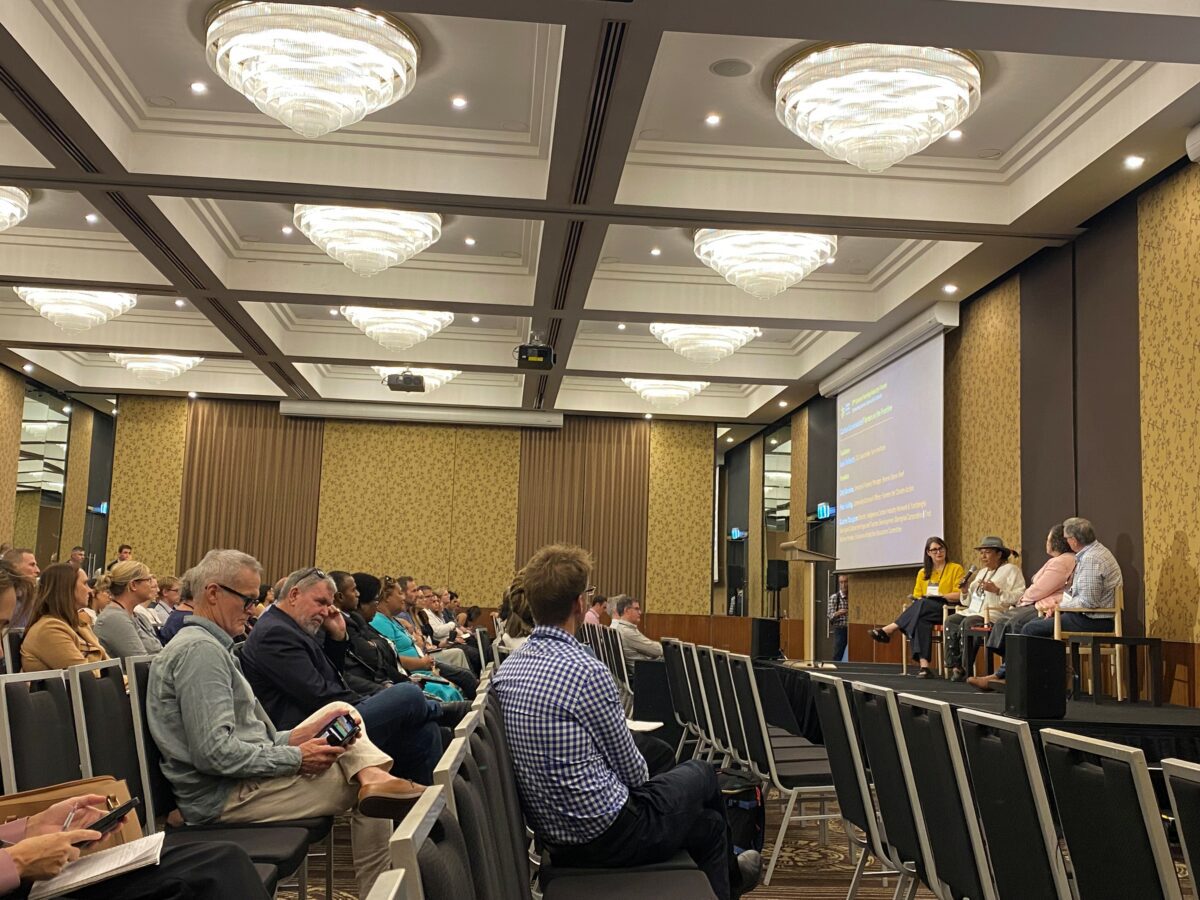The nature and climate crisis can only be tackled with a strong commitment to a nature positive approach, including nature positive carbon credits, former head of Treasury Dr Ken Henry said today.
Henry, who is Chair of the Australian Climate and Biodiversity Foundation, was speaking at the Carbon Farming Industry Forum in Cairns, hosted by the Carbon Market Institute.
Henry warned the Forum that, because of a flawed approach based on prioritising human well-being at the expense of nature, this generation of Australians risked being the first that could not confidently say that future generations will be able to live as well as we do.
“It’s well past time we accepted that securing economic and social development rests upon the rebuilding of natural capital, not its plunder.”
Henry cautioned that “only bits” of a comprehensive policy framework to achieve net zero by 2050 are currently in place.
Important components include the reformed Safeguard Mechanism, the ACCU scheme, and the early work on sector decarbonisation plans, he said.
“If you think about how that set of constructs might eventually deliver a coherent policy framework for the achievement of net zero, one thing stands out clearly, everything is going to rest on ACCUs,” Henry said.
“Given where we are now, the best we can hope for is that Australia’s net zero policy frameworks will evolve into a scheme that facilitates the economy-wide trading of ACCUs,” he said.
Henry stressed the importance of legislators and regulators ensuring that the ACCU framework operates with high integrity, standards, metrics, and methods, and with accurate emissions baselining.
He pointed out that five of the six sectors for which the government is developing net zero plans are likely to remain net emitters.
“If that’s the case, then it follows, that the sixth sector – which is agriculture and land, including forestry – must be a carbon sink,” he said. “And I think it is going to have to be a very large carbon sink.”
That means the land sector will be the principal source of ACCUs, which will be purchased by those operating in the other five sectors, and also possibly by overseas-based entities, he said.
Henry told the Forum that, “with limited exceptions”, landscape-based ACCUs should be required to be nature positive.
It is also important that market instruments such as the ACCU scheme “should be designed to change human behaviour”, for example by prompting them to avoid land clearing that increases greenhouse gas emissions and reduces biodiversity, he said.
“It is of course essential that we remove carbon from the atmosphere and that we repair degraded landscapes,” he said.
“But it’s equally important to give humans, especially landholders, a reason to stop putting more carbon into the atmosphere, and to stop destroying even more of our limited stores of natural capital.”
Henry told the Forum that Australians are “smart enough to make this work”, however it will also require an extraordinary amount of goodwill and cooperation across the board.
“Typically, Australians have proved themselves capable of such levels of innovation and cooperation, but only in times of crisis.”
“Well, that’s alright. Because that’s what this is. It is a crisis. And it falls to us to deal with it,” he concluded.
The Carbon Farming Industry Forum continues today in Cairns, featuring speakers representing farmers and land managers, including Traditional Owners, as well as regulators, and investors.
Ahead of the opening day at the Carbon Farming Industry Forum, CMI released its third annual Carbon Farming Roadmap report, which evaluates the progress of all Australian jurisdictions in fostering growth & ambition across the industry, as well as facilitating transparency and integrity. The full report is available here.
Carbon Market Institute Contact:
Thomas Hann on 0408 880 536 or thomas.hann@carbonmarketinstitute.org
Australian Climate and Biodiversity Foundation Contact:
Dominic Bossi on 0404 030665 or dominic@climatebiodiversity.org
About the Forum
The Carbon Farming Industry Forum will take place in-person at the Shangri-la The Marina from May 20-22 in Cairns. The Forum Program includes interactive plenaries, workshops and networking spread across two days, Tuesday 21st and Wednesday 22nd May 2023.
Under the umbrella theme of “Connecting Country, Community & Climate”, the 2024 Forum will focus on the following key themes providing a framework for discussions:
- Carbon Farming Market Developments, Optimising Policy Frameworks & Market Design
- Agricultural & Land Sector Decarbonisation
- The Nature & Climate Nexus
- Communicating Benefits & Building Capacity
The Forum is a national event convening the major stakeholders across the land-sector carbon credit supply chain to reflect on industry progress against the Carbon Farming Industry Roadmap.
About the Carbon Market Institute
The Carbon Market Institute (CMI) is a member-based institute accelerating the transition towards a negative emissions, nature positive world. It champions best practice in carbon markets and climate policy, and its around 150 members include primary producers, carbon project developers, Indigenous organisations, legal, technology and advisory services, insurers, banks, investors, corporate entities and emission intensive industries. The positions put forward constitute CMI’s independent view and do not purport to represent any CMI individual, member company, or industry sector.



